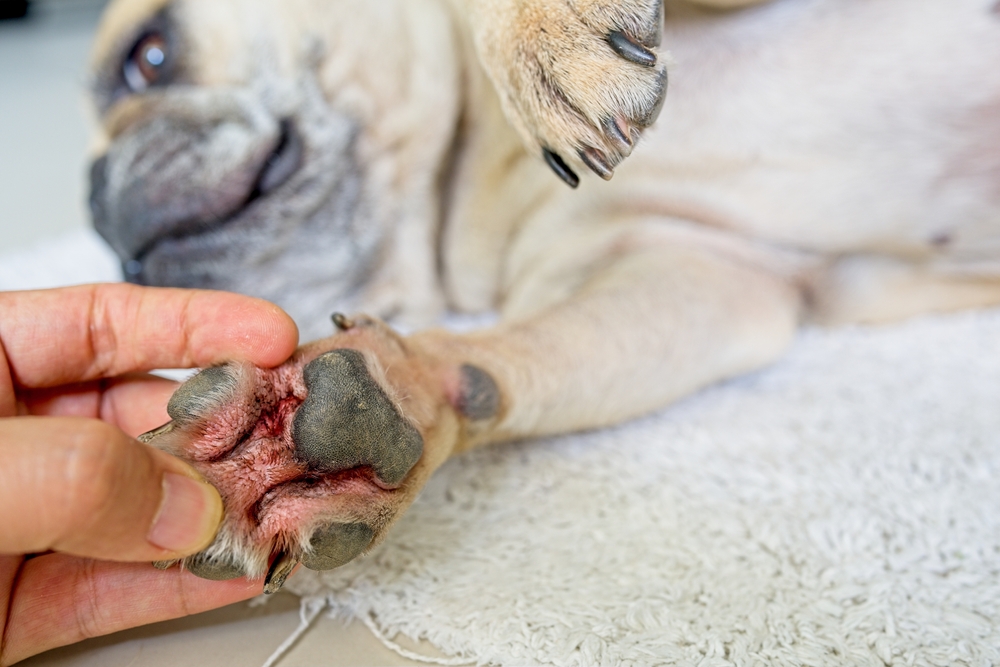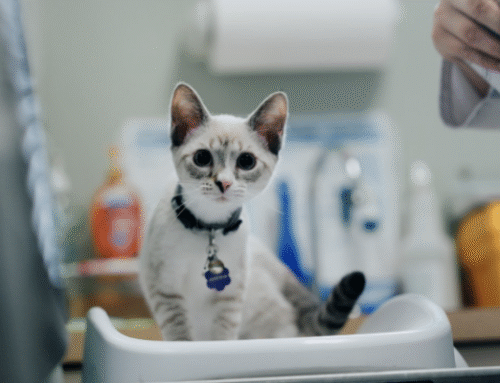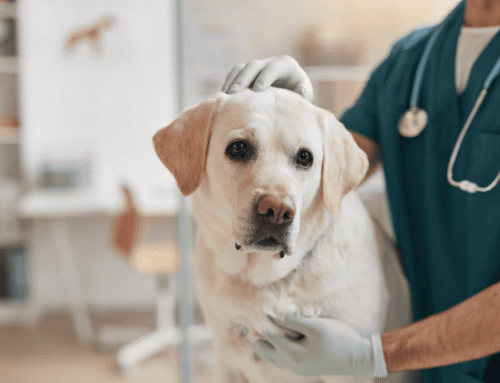When your skin itches, whether from a sunburn, rash, or other irritation, you may feel like you want to constantly scratch. This reaction is the same in cats and dogs. Skin conditions are prevalent issues affecting pets, often causing discomfort, rashes, and hair loss. Unfortunately, excessive licking, biting, and scratching can exacerbate skin problems. Our Safe Harbor Animal Hospital team explores pets’ common skin conditions, causes, and treatment options to help alleviate your furry friend’s discomfort.
Common skin issues in pets
Many things cause pets’ dermatologic issues. Skin disorders in pets can be triggered by any of the following:
- Allergic dermatitis — Allergic reactions to food, environmental allergens (e.g., pollen, dust mites), and flea bites can manifest as dermatitis. Pets’ allergic dermatitis signs include skin itchiness, redness, and swelling, hair loss, and hot spots.
Treatment: Our Safe Harbor Animal Hospital team treats this disorder by performing a physical exam and allergy testing to identify your pet’s allergens. Some treatment options may include monoclonal antibody therapy and JAX inhibitors, and depending on your pet’s specific allergen, we may prescribe an antihistamine, a corticosteroid, or a hypoallergenic diet. - Parasitic infections — Fleas, ticks, mites, and lice infestations can cause skin reactions in pets. Signs include intense skin itchiness, redness, and inflammation, hair loss, and parasites.
Treatment: Our team typically prescribes topical and oral medications to eliminate parasites, and other treatment options may include regular grooming, deep cleaning your home, and administering your pet’s preventive medications year-round. - Bacterial and fungal infections — Skin infections result from bacteria, such as staphylococcus, or fungi, such as ringworm. Often, bacterial or yeast overgrowth is caused by a weakened immune system, allergies, or poor hygiene. Infection signs include red, swollen, and sometimes oozing skin, scabs, hair loss, and foul odor.
Treatment: Treatment options we may prescribe include oral or topical antimicrobials and we may also recommend regular bathing and grooming to encourage skin and coat hygiene. - Seborrhea — A skin disorder causing greasy, flaky, and scaly skin, seborrhea is often linked to genetic predispositions, hormonal imbalances, or other skin conditions.
Treatment: Our veterinarian often prescribes medicated shampoos and dietary supplements, such as omega-3 fatty acids, and addresses any underlying conditions that contribute to this skin disorder. - Hot spots (i.e., acute moist dermatitis) — Allergies, insect bites, excessive licking or chewing, and moisture trapped in the coat can all contribute to hot spots in pets, primarily dogs. Hot spot signs include red, moist, and painful lesions, hair loss, and inflammation.
Treatment: Our team treats hot spots by cleaning the affected area and prescribing topical antibiotics or steroids. In some cases, we prescribe oral medications to control your pet’s pain or infection, especially if the lesion is large or multiple areas are involved. If your pet is affected, you must also prevent them from licking the area by outfitting them in an e-collar until the skin has recovered. - Yeast infections — Allergies, hormonal imbalances, or a weakened immune system can trigger yeast overgrowth, leading to infection. Pets’ yeast infection signs include itchy, red, and greasy skin, particularly in skin folds, ears, and between toes, with an accompanying distinctive odor.
Treatment: We prescribe antifungal shampoos and topical treatments to treat yeast infections and address any medical condition that contributes to the skin disorder.
Diagnosing skin conditions in pets
Accurate diagnosis is crucial for your pet to receive effective treatment. Our Safe Harbor Animal Hospital team may perform any of the following diagnostic tests:
- Physical exam
- Skin scraping
- Allergy testing
- Biopsy
- Parasite screening
- Blood tests
Managing skin disorders in pets
Some skin disorders can be effectively managed, relieving your furry pal’s discomfort and itchiness. Practice the following at-home skin and coat care regimen:
- Regular grooming — Brushing and bathing keep your pet’s coat clean and parasite-free, promoting the release of healthy skin oils.
- Balanced diet — High-quality food ensures your pet receives nutrients to maintain their healthy skin and coat. Optimal nutrition is necessary for general health and well-being, too.
- Flea and tick control — By regularly administering preventive medications that our team has prescribed, you help reduce your pet’s parasitic illness risk.
- Clean environment — By vacuuming and laundering regularly, including pet beds and blankets, you can reduce your pet’s exposure to environmental allergens.
- Wellness exams — Annual veterinary exams are vital for the early detection and treatment of skin conditions, as well as for promoting your furry friend’s lasting health.
Skin conditions in dogs and cats can range from minor irritations to serious health issues. By being proactive, you can help ensure your four-legged friend remains healthy and comfortable. If your pet is itchy or has skin issues, schedule a dermatology appointment with our Safe Harbor Animal Hospital team.









Leave A Comment